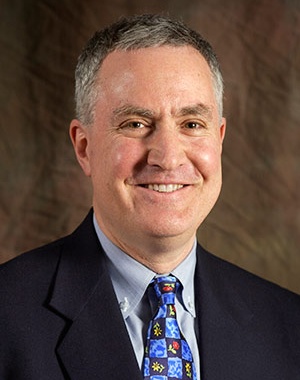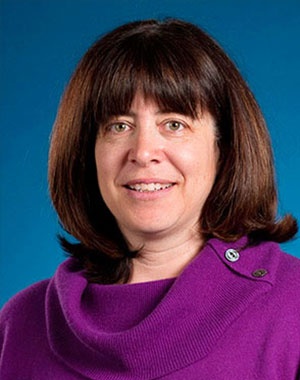Two weeks ago, 22 students from the Law School, the Ross School of Business, and the Stamps School of Art & Design plus 10 faculty members from those same schools gathered in an unremarkable Ross classroom for what is the beginning of a remarkable experience: the launch of a new interdisciplinary clinic at the University of Michigan known as the Detroit Neighborhood Entrepreneurs Project (DNEP).
DNEP is a cross-school engaged learning experience that brings together law students, business students, art and design students, and engineering/computer science students into interdisciplinary teams to provide advice and services to selected Detroit entrepreneurs. According to Center on Finance, Law, and Policy faculty director Michael S. Barr, “The goals are three-fold: to help Detroit neighborhood businesses start, grow, and thrive; to engage our students with an opportunity to learn how to solve real-life problems in a structured environment; and to foster what will hopefully be a life-long commitment to service.”
The cross-school collaboration marks the beginning of Phase III of a multi-year project.
In Phase I, U-M alumnus James Wahls (BA ’03 and JD ’06), then with the WK Kellogg Foundation, reached out to Professor Barr and U-M alumnus Paul Brown (BA 96, MBA ’08). The team worked together to secure $6.5 million from WK Kellogg Foundation and JPMorgan Chase Foundation to create the Entrepreneurs of Color Fund to support Detroit’s neighborhood-based businesses. The EOC Fund is led by Ray Waters, CEO of the Detroit Development Fund. In 2016 – its first year – the EOC Fund made 27 loans totaling $1.2 million. Recipient businesses included eight contractors/construction companies, seven restaurants, three retailers, two hair/beauty salons, a butcher, an art gallery, a food truck, a 3D design company, a construction-training school, a property management company, and a butcher. Waters estimates that these new businesses created 114 jobs and that another 165 new jobs will be created by these businesses.
In Phase II, using a grant from JPMorgan Chase Foundation, the law school hired intellectual property attorney Dustin Marlan to serve as Clinical Fellow in the Community & Economic Development Clinic to launch the legal services portion of this project. In August 2016, Professor Marlan began teaching and supervising four law students in conjunction with Clinical Professor Alicia Alvarez. Those students provided legal advice or services to nine small businesses in Detroit. These included a coffee shop, a tire waste repurposing company, a mobile app developer, a day care, a marketing consulting firm, a cosmetics wholesaler, a pop-up restaurant, Detroit graffiti tour company, and a residential and business cleaning services company.
Work on Phase III – the interdisciplinary clinic — began more than 18 months ago with the help of an MCubed grant. Barr, Ross School of Business professor Michael Gordon, Stamps School of Art & Design professor Hannah Smotrich, and College of Engineering professor Michael Wellman, joined forces with Alvarez and Marlan to design the interdisciplinary clinic. The Center also hired Christie Baer, who manages the program and coordinates faculty as part of her broader duties for the Center. The M Cubed grant made it possible to press forward with the logistical and pedagogical challenges of creating an interdisciplinary experience and ensuring adequate deal flow. Client prospects were referred by the U-M legal clinic and by Detroit-based community partners, including LifeLine and the Detroit Development Fund. Students were recruited individually by faculty and through the Ross School’s Center for Social Impact.
As planning continued, more faculty joined the effort, including Jerry Davis, Bill Lovejoy, Cathy Shakespeare, and Christie Brown from the Ross School of Business, and Jeff Ringenberg from the College of Engineering. In December, faculty interviewed client prospects and chose four clients for the DNEP Phase III pilot: a cosmetics manufacturer and wholesaler, a credit counseling company, a pop-up restaurant run by a soul musician, and a new coffee shop near the University of Detroit.
Fast forward to now, when seven faculty are supervising the student teams: Marlan from the law school, Gordon, Davis, Lovejoy, Brown, and Shakespeare from the Ross School, and Smotrich from the Stamps school. Working in client-centered teams, it is anticipated that the student teams will provide legal, business, accounting, design, and technical assistance and advice to the entrepreneurs. The students will also gain real-world experience and knowledge from the entrepreneurs.
“At the end of this, you’re not just going to deliver a report that will sit on a shelf somewhere,” Michael Gordon told students, “The things you do and say actually matter and will have a direct impact on your clients.”
The Center on Finance, Law, and Policy is continuing to raise money to sustain the project as part of a long-term investment in Detroit. If all goes well, students will be able to register to participate in DNEP again next semester.
Author Christie Ayotte Baer is the assistant executive director of the University of Michigan’s Center on Finance, Law, and Policy.




